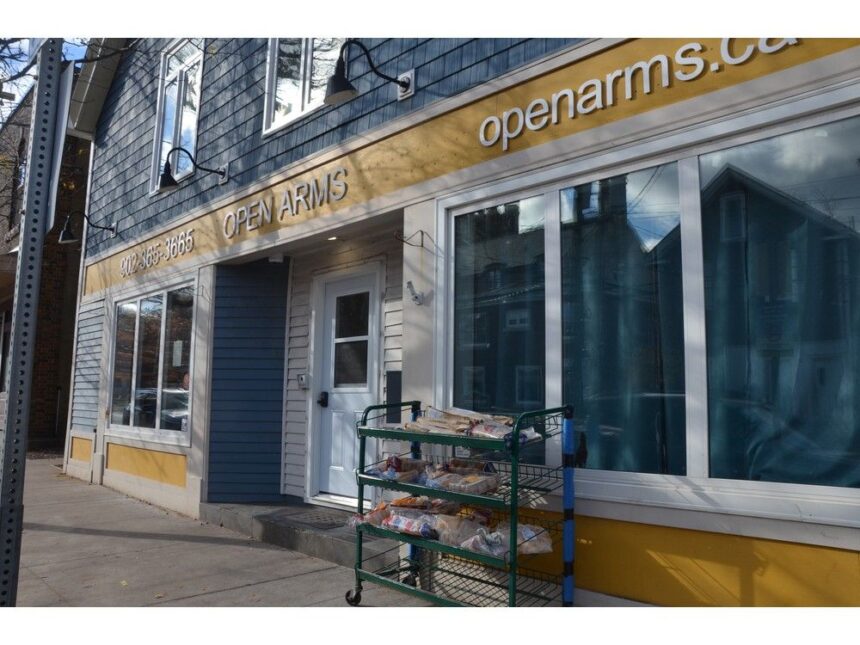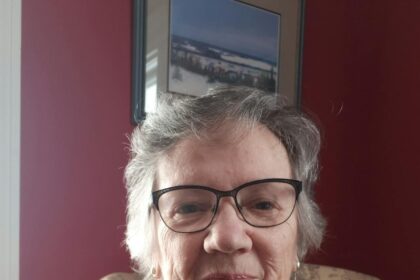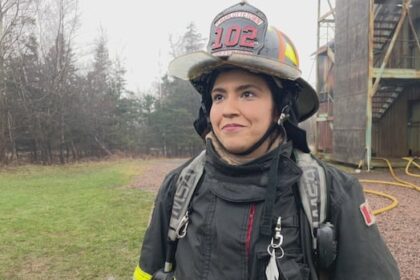Mayor asks province for more addictions, mental health resources for homeless populationPublished Nov 07, 20258 minute readKentville Mayor Andrew Zebian says the town has been experiencing problems with the Open Arms shelter facility on Bridge Street for the past couple of years and it “continues to escalate.” Photo by KIRK STARRATT /PostmediaArticle contentThe mayor of Kentville says recent provincial funding decisions have allowed organizations providing housing supports to purchase properties in town without any consultation.THIS CONTENT IS RESERVED FOR SUBSCRIBERS ONLY.Subscribe now to access this story and more:Unlimited access to the website and appExclusive access to premium content, newsletters and podcastsFull access to the e-Edition app, an electronic replica of the print edition that you can share, download and comment onEnjoy insights and behind-the-scenes analysis from our award-winning journalistsSupport local journalists and the next generation of journalistsSUBSCRIBE TO UNLOCK MORE ARTICLES.Subscribe or sign in to your account to continue your reading experience.Unlimited access to the website and appExclusive access to premium content, newsletters and podcastsFull access to the e-Edition app, an electronic replica of the print edition that you can share, download and comment onEnjoy insights and behind-the-scenes analysis from our award-winning journalistsSupport local journalists and the next generation of journalistsRegister to unlock more articles.Create an account or sign in to continue your reading experience.Access additional stories every monthShare your thoughts and join the conversation in our commenting communityGet email updates from your favourite authorsSign In or Create an AccountorArticle contentIn a Nov. 3 news release, Andrew Zebian said the town had not been informed about the intended use of several properties, leaving council and residents uncertain about potential impacts on the community. The town wants greater collaboration and transparency.Article contentArticle contentArticle contentThe town is calling on the provincial government to engage with it before approving or funding new housing or support sites; and to provide “appropriate health, addiction, and mental health supports alongside housing initiatives.”Article contentThe town also wants the province to ensure local police, first responders, and the community receive resources to handle the increased demand; and to work with those with lived experience to create long-term, compassionate and effective solutions.Article contentIn a Nov. 5 interview, Zebian said when there is no consultation from the province before new supportive or emergency housing is sited, there is potential for conflicts with surrounding land uses and other problems to arise.Article contentArticle contentHe said while it’s important to keep the town open for business, municipal officials aren’t being unsympathetic to people who need help. This is not about opposing housing or support services for people experiencing homelessness, addiction, or mental illness.Article contentArticle content“At the same time, those support systems have to remember that they’re occupying a little downtown core. They have to remember where they are and try to play by the rules too,” Zebian said.Article contentHe said the town isn’t hearing many complaints regarding supportive housing programs in Kentville operated by The Portal Youth Outreach Association, but is hearing complaints “about the management of Open Arms.”Article contentZebian said the town received no information from the provincial government or the Open Arms Resource Centre about four downtown properties Open Arms recently acquired.Article contentHowever, in a Nov. 6 social media post, Zebian said discussions had just occurred, and the province confirmed it is providing funding for several properties in downtown Kentville.Article content“While the province has clearly provided funding for the purchase and operation of these properties, what remains unclear is the funding for the supports and services that people actually need, mental health care, addiction treatment, and day-to-day case management,” Zebian said.Article contentThe mayor said he recognizes there is no singular solution to help every individual experiencing homelessness. However, he said his feeling is there is a disconnect between the emergency and supportive housing being provided and the level of visible provincial support services needed to help those clients, particularly those dealing with addiction and mental health issues.Article contentArticle contentHe said he’s seeing the same people staying at the downtown shelter “for years and years.” Zebian said it’s important they be fed and have a roof over their heads, but they need a much higher level of support to deal with underlying problems.Article content Kentville Mayor Andrew Zebian says the town is calling on the provincial government for greater collaboration and transparency when it comes to funding or establishing new support housing or service sites within town boundaries. Photo by FILE PHOTO /PostmediaArticle contentDowntown issuesArticle contentIn the Nov. 5 interview, the mayor said he isn’t placing all the blame for problems being experienced in downtown Kentville on Open Arms.Article contentHowever, Zebian said the town has been experiencing problems with the Open Arms shelter facility (OASIS) on Bridge Street for the past couple of years and it “continues to escalate.”Article contentSome residents, business owners, and visitors are complaining they no longer feel safe downtown, he said. This includes some business operators who have said they aren’t going to renew their leases.Article content“Even people who own properties in town said to me that they’re going to pull up and leave,” the mayor said.Article contentArticle contentZebian said the town has a great police force, but members of the Kentville Police Service aren’t mental health professionals. They are “at their limit” responding to calls relating to mental health and social crises in the downtown core. This is diverting resources from regular policing duties.Article content“I wouldn’t be surprised if the police department doesn’t come ask us for more officers at some point,” Zebian said.Article contentHe said there is a problem with needles and other drug paraphernalia being left on the ground, and with public drug use. Having discarded needles laying around poses public safety concerns. Vandalism is another major concern downtown with five or six windows being smashed over the past couple of weeks.Article contentZebian said his understanding through speaking with a board member is that Open Arms clients are asked to leave the Bridge Street shelter only if they’ve damaged the interior of the shelter itself.Article contentZebian has asked an Open Arms board member if they could help address problems such as clients loitering and not adhering to the town’s smoking bylaw. He has also asked if the fence that used to be in front of the Bridge Street property could be replaced. Zebian said these “little things that they could probably start working on would go a long way.”Article contentZebian said there must be some accountability and some rules enforced, and “a little more planning when (the province hands) out those cheques.”Article contentHe said rather than funding the purchase of more buildings, perhaps the money would be better spent on programming to help existing Open Arms clients, thereby creating the capacity for more people to be helped.Article contentZebian said the current situation isn’t sustainable. It’s important for Open Arms to come to the table with the town, province, police department, business community, and the community at large to discuss the situation. He said there must be an admission that current services are “failing.”Article contentArticle content“That’s the first step,” Zebian said. “We can’t handle this.”Article content Open Arms Resource Centre executive director Leanne Jennings says it does not disclose the locations of the supportive living programs “for the safety and privacy of our clients.” Photo by FILE PHOTO /PostmediaArticle contentOpen Arms respondsArticle contentOpen Arms Resource Centre executive director Leanne Jennings said on Nov. 7 that Open Arms provides an integrated and comprehensive suite of supports designed to help individuals experiencing or at imminent risk of homelessness achieve independence and stable housing. In this regard, Open Arms is succeeding in fulfilling its mandate.Article contentShe said the centre does not disclose the locations of their supportive living programs “for the safety and privacy of our clients.”Article contentThe Aberdeen Street property Open Arms has acquired would primarily be used as office space to meet the organization’s needs. The centre plans to offer opportunities for other service providers to co-locate to better serve individuals experiencing, or at risk of, homelessness.Article contentArticle content“We also plan to move some of our client support services to this location to better serve our clients,” Jennings said.Article contentShe said that by providing meaningful daily activities and better connection to resources, the new building will provide a “welcoming and safe space for individuals experiencing homelessness to spend their time. The focus of the space will be intentional, active engagement with participants that is housing focused.”Article content“The provision of food and access to showers and laundry facilities will remove the need for individuals who are not guests at OASIS to spend time on Bridge Street,” Jennings said.Article contentShe said centre officials believe they serve the community by providing professional services to individuals who are experiencing or at risk of homelessness.Article contentJennings said they are confident that through strong community partnerships and open communication, and with their new purpose-built spaces, they can operate their services “with integrity and efficacy.”Article contentOpen Arms does not directly provide health services, including addiction and mental health supports, but strives to connect individuals who need these supports to the existing system of care.Article contentShe said they have notified the provincial government the community needs a mobile, community-based mental health team to better serve the increasingly complex needs of a portion of the population Open Arms serves.Article content“We also need more affordable housing options located within communities throughout our region so that we can better support individuals exiting homelessness,” Jennings said.Article contentShe said homelessness is a complex social issue. They plan to continue to work collaboratively with other service providers, law enforcement, and community partners to address the complex needs of those experiencing homelessness. They believe “everyone has a role to play.”Article contentArticle content Kings North MLA John Lohr says that in his opinion, there is already good collaboration between the province and municipalities, but it could always be better, and they’re working toward that. Photo by FILE PHOTO /PostmediaArticle contentProvince aware of issuesArticle contentKings North MLA John Lohr said the responsibility for homelessness resides with the Department of Opportunities and Social Development, and his understanding is officials have met several times with the mayor during the past couple of weeks.Article content“We’re very aware that there are issues in the community. We’re concerned about that and we want safe, healthy communities too,” Lohr said.Article contentHe said it is a complicated situation with a lot of stakeholders involved. They need partnerships with Nova Scotia Mental Health and Addictions, law enforcement agencies, service providers like Open Arms, and several others.Article contentLohr said they’re working to create “that bigger conversation” about how to handle the situation. While government officials are sympathetic to issues in the community, they want solutions that work for all Nova Scotians, including homeless people.Article contentArticle content“Finding that balance is what we’re working to do,” Lohr said.Article contentHe said it’s a challenging environment because individuals who are homeless often have addictions and mental health issues which are difficult to help, and this is noticeable in the community.Article contentHe said that in his opinion, there is already good collaboration between the province and municipalities, but it could always be better, and they’re working toward that.Article content“We know we need to do more. We’ll continue to try to do more, and do a better job of it,” Lohr said.Article contentArticle contentWhat Open Arms doesArticle contentOpen Arms executive director Leanne Jennings said the organization provides shelter, outreach, and housing support, and all their programs are housing focused.Article contentTheir dedicated outreach team spends time in communities throughout the Annapolis Valley specifically to engage with individuals experiencing homelessness. Outreach staff are trained in trauma-informed care and motivational interviewing, which allows them to build relationships with those they serve to support in connecting with the system of care.Article content“Our presence ensures that people on the street are being actively connected to housing resources,” Jennings said.Article contentThe mission of Open Arms is to create lasting, positive change by supporting individuals out of homelessness and into sustainable housing through evidence-based practices. Jennings said they honour each person’s unique experiences and perspectives, “listening deeply and acting with genuine regard.”Article content“We uphold every individual’s worth by providing compassionate support that recognizes their strengths,” she said.Article contentOpen Arms adheres to the Housing First principle, meaning the most urgent need is safe, stable, housing. They connect individuals with housing immediately, without imposing pre-conditions like sobriety or employment. This stabilizes their lives, making clinical and employment support services more effective.Article contentArticle contentThe Open Arms Supportive Living Program is designed for medium-term stays, typically ranging from six months to three years. This serves as a transitional step toward independent market housing or a more structured, permanent living arrangement. The target population includes adults generally aged 25 to 58 who have experienced long-term homelessness.Article content“The length of stay is flexible and guided by each resident’s progress, stability, and readiness to transition,” Jennings said.Article contentThe program operates with a housing-first, trauma-informed, and harm-reduction framework. Staff provide individualized, relationship-based support that emphasizes safety, autonomy, and community integration.Article contentThe goal is to help residents build stability and develop daily living skills necessary to transition successfully into more independent and sustainable housing. The program is staffed 24-7 by professionally trained housing support staff.Article content
Kentville, N.S., calls for transparency, collaboration in siting housing supports











